EU proposes suspending trade concessions with Israel over Gaza
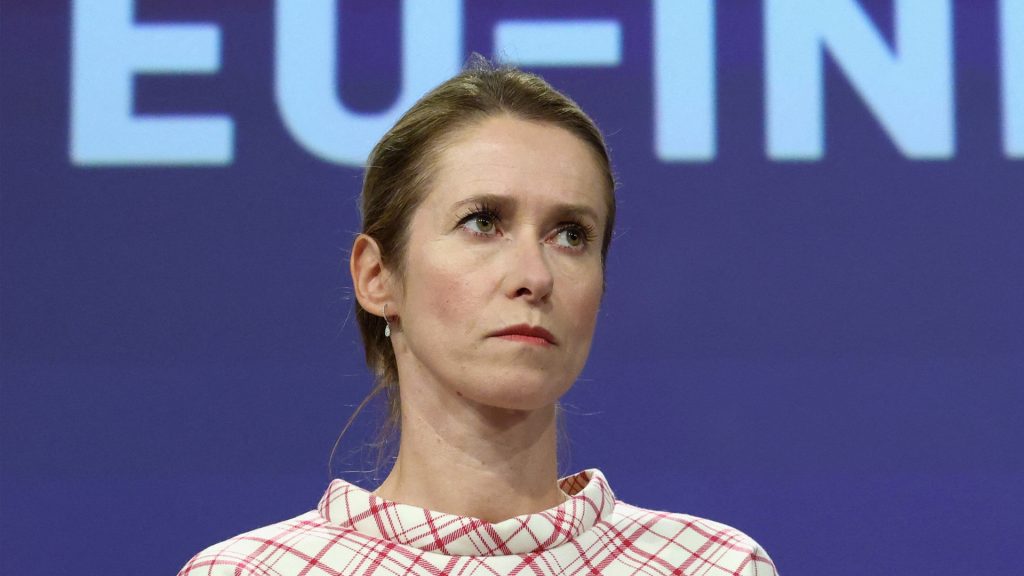
NewsFeed The European Commission has presented a measure to suspend its trade concessions on Israeli exports worth nearly $6.87 billion because of Israel’s war on Gaza. The proposal does not have enough support among the EU’s 27 nations to pass. Published On 17 Sep 202517 Sep 2025 Click here to share on social media share2 Share Adblock test (Why?)
Lebanon’s terrible year: From exploding pagers to Israeli occupation
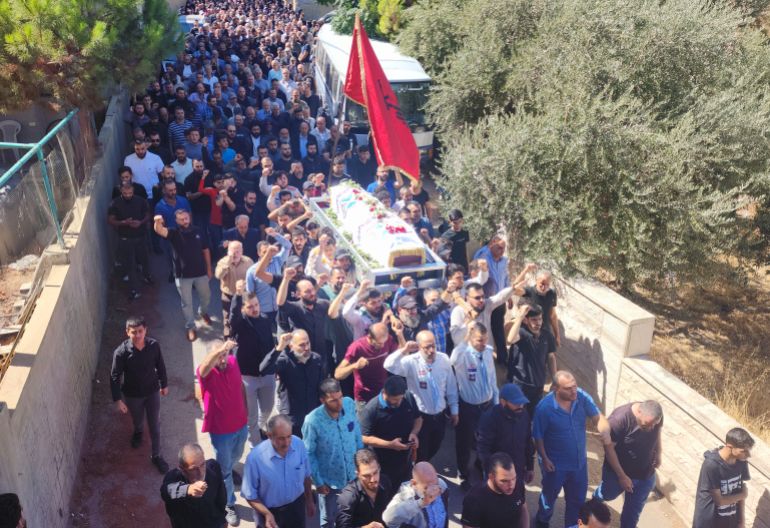
On September 17, 2024, a series of small explosions echoed along many of Lebanon’s streets. The incident, which sparked confusion and terror throughout the country, came to be known as the pager attack – and was a definitive day in Israel’s war on Lebanon. The attack wounded many operatives with connections to Hezbollah in Lebanon and Syria but also hurt and killed civilians, including two children. What followed in the days, weeks and months after was a whirlwind of intensifying violence, political assassinations and mass displacement in Lebanon as Israel expanded a relatively controlled war with the Iran-backed, armed political group Hezbollah into an all-out assault on southern Lebanon, the Bekaa Valley in the east and Beirut. One year on, the political reality on the ground has been flipped on its head. Hezbollah, which was first formed in 1982 to resist Israel’s occupation of southern Lebanon, is no longer the military and political force it had been in recent years. Now, a battle is under way to disarm the group altogether. In its bid to achieve this, Israel has unleashed its military might on southern Lebanon and continues to occupy at least five points in the area, bringing back the trauma of its occupation from 1982 to 2000. Tens of thousands of people are still unable to return to their villages as a result. On the first anniversary of the pager attack, this is a timeline of events in Lebanon’s difficult year under Israeli aggression and occupation: In the months leading up to the attack, Israeli intelligence was able to place devices implanted with small explosives into Hezbollah’s pager supply chains. Advertisement When thousands of these pagers were detonated by Israeli operatives, more than 3,000 people were wounded – many lost body parts, eyes and hands mostly – and at least 12 people were killed. “Every five to 10 seconds, I heard another [explosion],” 40-year-old Ali who was in Beirut’s southern suburbs when the attack took place told Al Jazeera the following day as he sat outside the American University of Beirut Medical Center. People attend the funeral of Fatima Abdullah, a girl who died in a pager explosion, in Saraain El Faouqa, a village in the Baalbek district of Lebanon on September 18, 2024 [Suleiman Amhaz/Anadolu via Getty Images] September 18: Exploding walkie-talkies The day after the pager attack, walkie-talkies with explosives embedded in them were detonated, striking further fear into the Lebanese public. Twenty people were killed and more than 450 wounded in the attack that ostensibly targeted Hezbollah members but also counted civilians among the casualties. Legal experts told Al Jazeera that the Israeli attacks violated international law. “We seem to be living in a Netflix series or in a dystopia,” Lebanese political analyst Karim Emile Bitar said at the time. In the following days, Israeli jets began flying low over Beirut, causing frequent sonic booms. September 23: Deadliest day since Lebanese Civil War Hezbollah and Israeli forces had been exchanging near-daily fire across the Lebanese border since the onset of Israel’s war on Gaza in October 2023. Until the week of September 23, these exchanges had been relatively controlled and followed certain rules of engagement. Hezbollah mostly attacked military targets while Israel predominantly executed targeted strikes on Hezbollah operatives although civilians, including journalists, had been killed. Israel also targeted villages and towns in southern Lebanon with white phosphorus with the aim of creating a buffer zone between northern Israel and southern Lebanon that would be uninhabitable for local residents. But on this day, the rules of engagement appeared to be set aside as Israel killed upwards of 500 people in Lebanon, marking the country’s deadliest single day since its 1975-1990 civil war, in the first of a series of air strikes. Israel’s widespread bombing campaign continued on for more than two months, killing more than 3,000 people and displacing nearly a million, including thousands of foreign nationals and labourers. September 27: Nasrallah assassinated, orders to evacuate On the evening of September 27, residents of Beirut heard a ground-shaking explosion. Advertisement After initial confusion about where the explosion had occurred, the following day about noon, the news was announced: Israel had assassinated longtime Hezbollah Secretary-General Hassan Nasrallah by dropping about 80 bunker-busting bombs in an attack on Dahiyeh, in Beirut’s southern suburbs, killing at least 33 people. Hours after the Nasrallah assassination but before the news had been confirmed, Israel issued displacement notices to residents of Beirut’s southern suburbs. Those with nowhere else to go fled to the city’s seafront as the first of two months of daily attacks and evacuation orders from Israel’s Arabic-language spokesperson began. As those displacements became more frequent, human rights groups noted that Israel’s demands that Lebanese civilians leave those areas were violations of international law and Israel’s military was not upholding its responsibility under international law to avoid harming civilians. September 30: First Israeli attack on Beirut Israel killed three members of the Popular Front for the Liberation of Palestine (PFLP) in central Beirut’s Kola district in an air strike that took out an entire floor of an apartment building but left the rest of the building standing. October 3: Safieddine assassination Less than a week after Nasrallah was killed, so too was the man set to be his successor: Hashem Safieddine. His death would not be confirmed for several days because any attempt to approach the scene of the air strike in the southern suburbs of Beirut was blocked by Israeli forces. October 7: Firefighters killed by Israel When Israel killed 10 firefighters in a strike on the southern Lebanese town of Baraachit near Bint Jbeil, a pattern started to emerge: direct Israeli targeting of first responders in emergency situations. Late October: ‘Urbicide’ As Israel’s daily attacks on civilian infrastructure continued, observers began to describe its actions as “urbicide” – the destruction of a city, or “city killing”. “It’s this huge obliteration of the place and the people and its memories,” Mona Harb, professor of urban studies and politics at
Charlie Kirk shooting: Tyler Robinson’s messages and charges against him

Tyler Robinson, the suspect in the killing of conservative US activist Charlie Kirk appeared virtually on Tuesday for his first court hearing since his arrest Earlier, Utah prosecutors said they would seek the death penalty for Robinson, as they cited evidence against him, including alleged text messages in which he appeared to confess to carrying out the assassination on September 10 during an even that Kirk was hosting at Utah Valley University (UVU). “I had enough of his hatred,” Robinson, 22, told his flatmate and romantic partner when asked why he had committed the murder, according to transcripts filed by prosecutors with the court. “Some hate can’t be negotiated out,” he added. Here is what we know: What happened on Tuesday? Prosecutors laid out extensive evidence against Robinson, much of it taken from his own communications with friends and family. He also made his first court appearance on Tuesday in Provo, Utah, via a video feed from the county jail where he is being held. Robinson showed up unshaven and wearing what appeared to be a green suicide-prevention smock. He showed no expression, but listened closely as the judge read the charges and warned he could face the death penalty. Robinson spoke only once, to state his name. In court filings, prosecutors began to lay out the case against Robinson, who was at large for more than 30 hours before turning himself in. The document also revealed text messages from Robinson to his flatmate, whom Utah County Attorney Jeff Gray described as “a biological male who was involved in a romantic relationship with Robinson”. Utah Governor Spencer Cox earlier described the flatmate as a person “transitioning from male to female”. This screengrab from the Utah court livestream shows Tyler Robinson attending a court appearance remotely from his jail cell in Provo, Utah [AFP] What was Tyler Robinson charged with? Gray said Robinson was charged with seven offences, including aggravated murder and felony discharge of a firearm. Advertisement Gray said he would seek the death penalty, citing the threat to others at the UVU event where Kirk was shot, especially children, in addition to Kirk’s killing. The 10-page charging document filed by Utah officials contains details on the reasoning behind the charges against Robinson. Here are the charges against Robinson: Count 1: Aggravated murder, which pertains to Robinson’s shooting and killing of Charlie Kirk in a manner that exposed others, in addition to Kirk, to a great risk of death. Count 2: Felony discharge of a firearm causing serious bodily injury, a first-degree felony. Count 3: Obstructing justice, a second-degree felony, for moving and concealing the rifle used in the shooting. Count 4: Obstructing justice, which pertains to Robinson’s removal and hiding of the clothing he wore. Count 5: Witness tampering, which pertains to Robinson’s statement to his flatmate telling him to delete his incriminating text. Count 6: Witness tampering, a third-degree felony, for directing his flatmate to stay silent if police questioned him. Count 7: Violent offence committed in the presence of a child, which pertains to Robinson’s shooting of Kirk in the presence of children under the age of 14, who were visible at the event. Why did Robinson’s mother suspect her son was the perpetrator? The document added to previous details that authorities had made public about Robinson soon after his arrest, detailing how his family and flatmate had cooperated with investigators and played a key role in convincing the suspect to turn himself in. Prosecutors said his mother told investigators that the day after the shooting, she saw a photo of the suspect on the news and thought it looked like her son. “Robinson’s mother called her son and asked him where he was. He said he was at home sick… [She] expressed concern to her husband that the suspected shooter looked like him. Robinson’s father agreed,” the document said. “His father also believed that the rifle that police suspected the shooter used matched a rifle that was given to his son as a gift.” Robinson eventually spoke to his father on the phone and implied that he would kill himself, according to prosecutors. With the help of a family friend who is a retired deputy sheriff, his parents persuaded him to surrender to authorities. Robinson’s mother said that over the last year or so, her son had become more political and leaned more to the left, “becoming more pro-gay and trans-rights oriented”. Robinson “began to date his roommate, a biological male who was transitioning genders”, his mother added. Utah County Attorney Jeffrey Gray speaks during a news conference about the charges [Jim Urquhart/Reuters] What else did the text messages reveal? On the day of the shooting, Robinson texted his flatmate and partner, the document said, telling them to “drop what you’re doing, look under my keyboard”. Advertisement When the flatmate looked under Robinson’s keyboard, they found a note. The note read: “I had the opportunity to take out Charlie Kirk and I’m going to take it.” After reading the note, the flatmate texted Robinson back: “What????????????? You’re joking, right????” Robison: “I am still ok my love, but am stuck in orem for a little while longer yet. Shouldn’t be long until I can come home, but I gotta grab my rifle still. To be honest I had hoped to keep this secret till I died of old age. I am sorry to involve you.” Flatmate: “you weren’t the one who did it right????” Robinson: “I am, I’m sorry” Flatmate: “I thought they caught the person?” Robinson: “no, they grabbed some crazy old dude, then interrogated someone in similar clothing. I had planned to grab my rifle from my drop point shortly after, but most of that side of town got locked down.” A charging document in the State of Utah v Tyler Robinson [Provo District Court/Handout via Reuters] Robinson also told his flatmate that the rifle he allegedly used belonged to his grandfather. He sent several messages about how he might retrieve it while police
Brazil’s Bolsonaro taken to hospital after feeling unwell
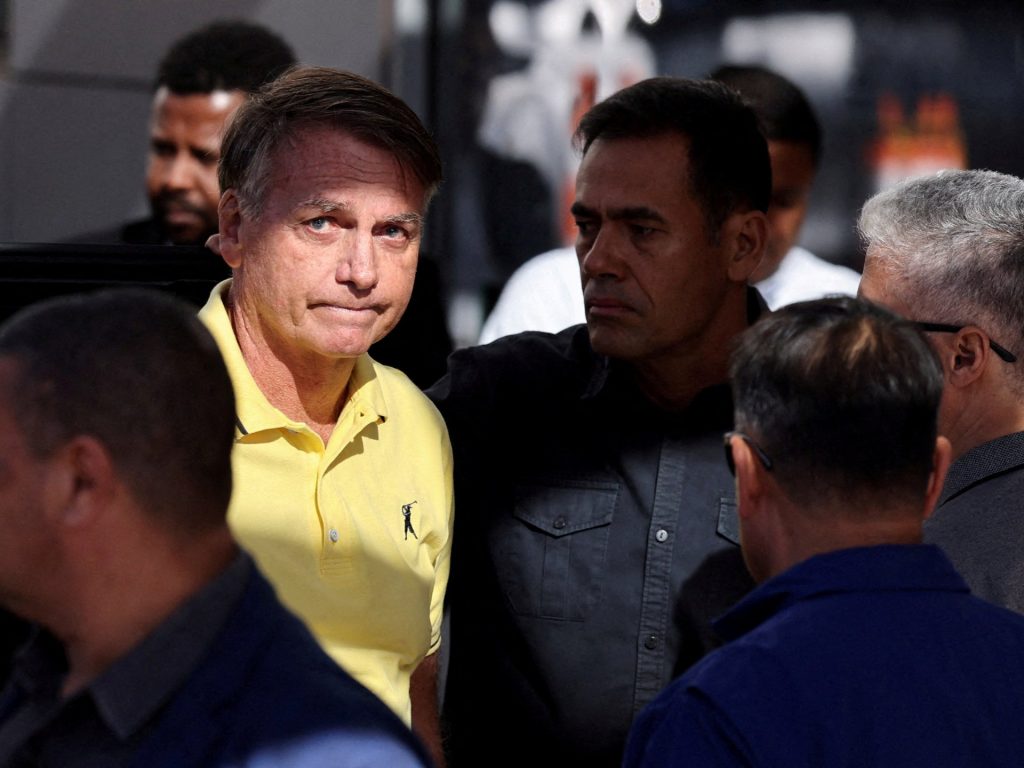
Convicted ex-leader rushed to a hospital in Brasilia after falling ill at his residence, his son says. Former Brazilian President Jair Bolsonaro, who was sentenced to prison last week for plotting a coup, has been rushed to hospital after falling ill while under house arrest, his son said. The emergency visit on Tuesday is the 70-year-old former army captain’s second trip to the hospital since his conviction. Recommended Stories list of 4 itemsend of list Bolsonaro has had recurring intestinal issues since he was stabbed while campaigning in 2018, including at least six related surgeries, the last being a 12-hour-long procedure in April. He won the election that year, and governed from 2019 to 2023. “Bolsonaro felt unwell a short while ago, with a severe bout of hiccups, vomiting, and low blood pressure,” his son, Flavio, wrote on X. “He was taken to DF Star [Hospital] accompanied by correctional police officers who guard his home in Brasília, as it was an emergency,” he wrote. Bolsonaro visited the same hospital on Sunday, and had eight skin lesions removed and sent for biopsies. A panel of Supreme Court justices on Thursday found the former leader guilty of plotting a coup after he lost the 2022 election to current President Luiz Inacio Lula da Silva. They sentenced him to 27 years and three months in prison. The sentence, however, does not immediately send him to jail. The court panel has up to 60 days to publish the ruling after the decision, and once it does, Bolsonaro’s lawyers have five days to file motions for clarification. Bolsonaro has denied wrongdoing and said he is the victim of political persecution. United States President Donald Trump has also called the trial a “witch-hunt”, and imposed tariffs of 50 percent on Brazilian goods, citing the case against Bolsonaro, among other issues. Advertisement The former Brazilian leader has been under house arrest since August for allegedly courting pressure on the courts from Trump. He had already been wearing an ankle monitor. Separately on Tuesday, a federal court ordered Bolsonaro to pay 1 million reais ($188,865) in damages for collective moral harm stemming from racist comments he made while in office. The inquiry originated from Bolsonaro’s statements to a Black supporter who approached him in May 2021 and asked to take a picture. The former president joked, saying he was seeing a cockroach in the man’s hair. He also compared the man’s hairstyle with a “cockroach breeding ground”, implying the hair was unclean. There was no immediate comment from his legal team after the latest court order. His defence had previously told media outlets that the former leader’s remarks were intended as jokes rather than racist statements, denying any intent to cause offence. Public opinion in Brazil, meanwhile, is split on Bolsonaro’s prison sentence on coup charges, and the far-right politician’s allies have laid out several plans to overturn or reduce the jail term. In the Congress, they have rallied behind an amnesty bill, building on the campaign to free hundreds of his supporters who stormed and vandalised government buildings in January 2023. Sao Paulo Governor Tarcisio de Freitas, a leading Bolsonaro ally, has also promised repeatedly to pardon the former leader if he were to become president in next year’s election. A court has barred Bolsonaro from running for office until 2030, though the former president insisted earlier this year that he would compete in the 2026 presidential election. For his part, Lula, the incumbent president, has hailed the sentencing of Bolsonaro as a “historic decision” that followed months of investigations that uncovered plans to assassinate him, the vice president and a Supreme Court justice. Bolsonaro’s conviction, he also said, “safeguards” Brazil’s institutions and the democratic rule of law. Adblock test (Why?)
Top aid groups call on world leaders to stop Israel’s genocide in Gaza
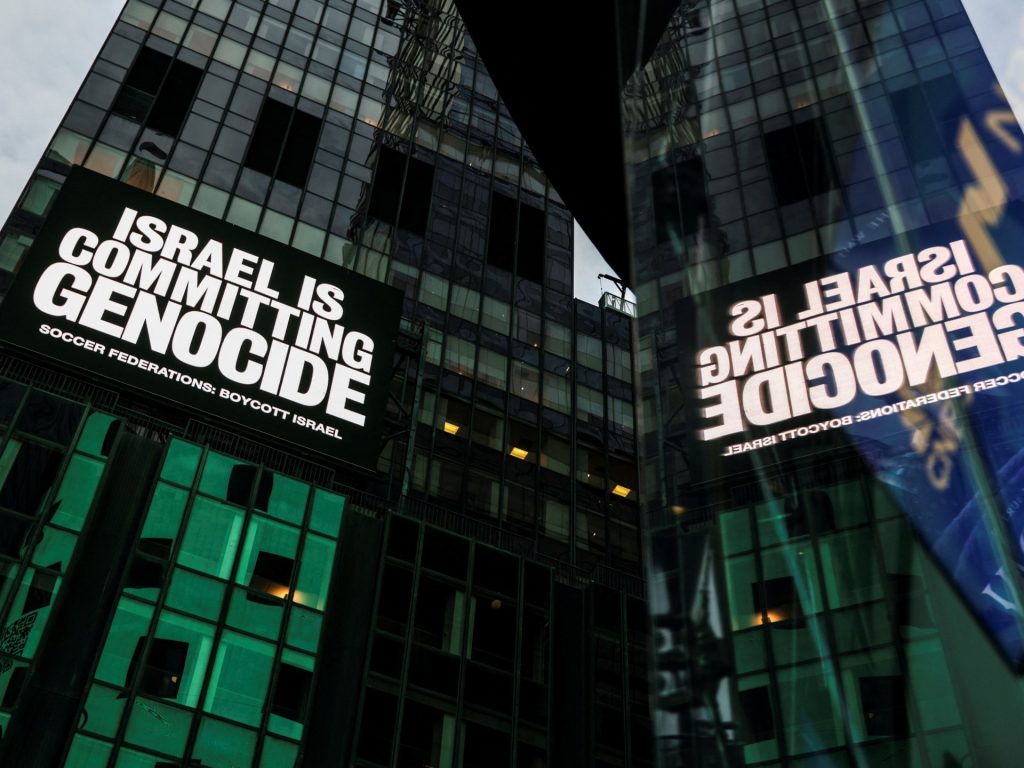
MSF, Islamic Relief and Save the Children are among the 22 aid groups issuing a joint call for world leaders to ‘urgently intervene’ to stop Israel’s genocide. The heads of more than 20 aid agencies working in Gaza have called on world leaders to “urgently intervene” in the war, following the first-ever determination by a United Nations commission that Israel is perpetrating genocide in the devastated territory. With an estimated 65,000 Palestinians killed in Israeli attacks so far in Gaza, including more than 20,000 children, the agencies warned early on Wednesday that almost 1 million more people are now “on the precipice of an even deadlier period in Gaza’s story if action is not taken”. Recommended Stories list of 4 itemsend of list “The inhumanity of the situation in Gaza is unconscionable,” the groups said in a joint statement, warning that Israel’s latest efforts to forcibly displace Gaza City’s population through a ground occupation are aimed at making the enclave’s largest urban area “deliberately… uninhabitable”. “As humanitarian leaders, we have borne direct witness to the horrifying deaths and suffering of the people of Gaza. Our warnings have gone unheeded and thousands more lives are still at stake,” the agencies said. “More than half a million people are starving. Famine has been declared and is spreading. The cumulative impact of hunger and physical deprivation means people are dying every day,” they said. Despite the well-documented horrors that have unfolded for almost two years under Israel’s siege of the Palestinian territory and enforced starvation of the enclave’s civilian population as they try to survive under military fire, “world leaders fail to act”. “States must use every available political, economic, and legal tool at their disposal to intervene. Rhetoric and half measures are not enough. This moment demands decisive action,” the aid groups said. Advertisement “History will undoubtedly judge this moment as a test of humanity,” they said, adding that UN members must take action, or their “complicity” will set a “dangerous precedent for the future”. Christopher Lockyear, a signatory to the joint statement and the secretary-general of Doctors Without Borders, known by its French acronym MSF, said on Monday that Israel’s military onslaught in Gaza amounts to “the systematic destruction of a people”. MSF is clear, Lockyear said: “Israel is committing genocide against Palestinians in Gaza and doing so with absolute impunity.” “The Israeli military has attacked everything and everyone in Gaza,” he added. Signatories to the statement also include Islamic Relief Worldwide, ActionAid International, CARE International, Handicap International, Save the Children International, the Norwegian Refugee Council and Médecins du Monde. On Tuesday, Navi Pillay, the chairwoman of the UN’s Independent International Commission of Inquiry on the Occupied Palestinian Territory, said the world body had determined that Israel was carrying out genocide in Gaza. Among those most responsible, based on their own statements, for the genocide were Israeli Prime Minister Benjamin Netanyahu, former Minister of Defence Yoav Gallant and President Isaac Herzog, Pillay said. The UN Commission, in its report, “concludes that the Israeli authorities and Israeli security forces have the genocidal intent to destroy, in whole or in part, the Palestinians in the Gaza Strip”. Israel’s Ministry of Foreign Affairs took to social media to call the report’s findings “fake” and accused the authors of “serving as Hamas proxies”. Adblock test (Why?)
At least 50 dead after vessel carrying Sudanese refugees catches fire
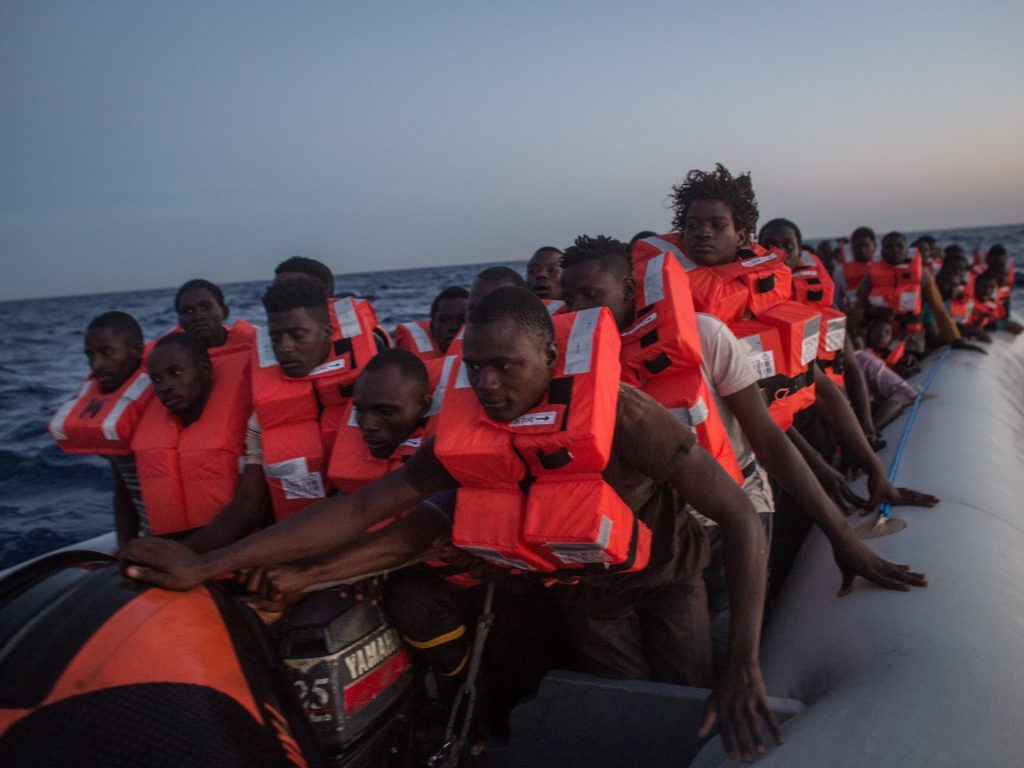
In the Mediterranean Sea, at least 2,452 migrants or refugees died or went missing last year. Published On 16 Sep 202516 Sep 2025 Click here to share on social media share2 Share At least 50 people have died after a vessel carrying 75 Sudanese refugees caught fire near the Libyan coast on Sunday, according to the International Organization for Migration (IOM). The United Nations migration agency said on Tuesday that it has provided medical support to 24 survivors. Recommended Stories list of 4 itemsend of list “Urgent action is needed to end such tragedies at sea,” IOM’s Libya chapter posted on X. Last month, at least 68 refugees and migrants died and dozens went missing after a boat capsized off the coast of Yemen, according to the IOM. At least 2,452 migrants or refugees died or went missing in the Mediterranean Sea last year, according to the IOM, making it one of the deadliest routes for refugees. Libya has emerged as a transit route for migrants or refugees trying to reach Europe since the fall of Libyan leader Muammar Gaddafi in 2011. During Gaddafi’s rule, African migrants found work in the oil-rich country. But since his ouster, the North African country has been mired in armed conflict among rival militias. Libya is home to around 867,055 migrants. Adblock test (Why?)
Mexico celebrates Independence Day with female leader for first time
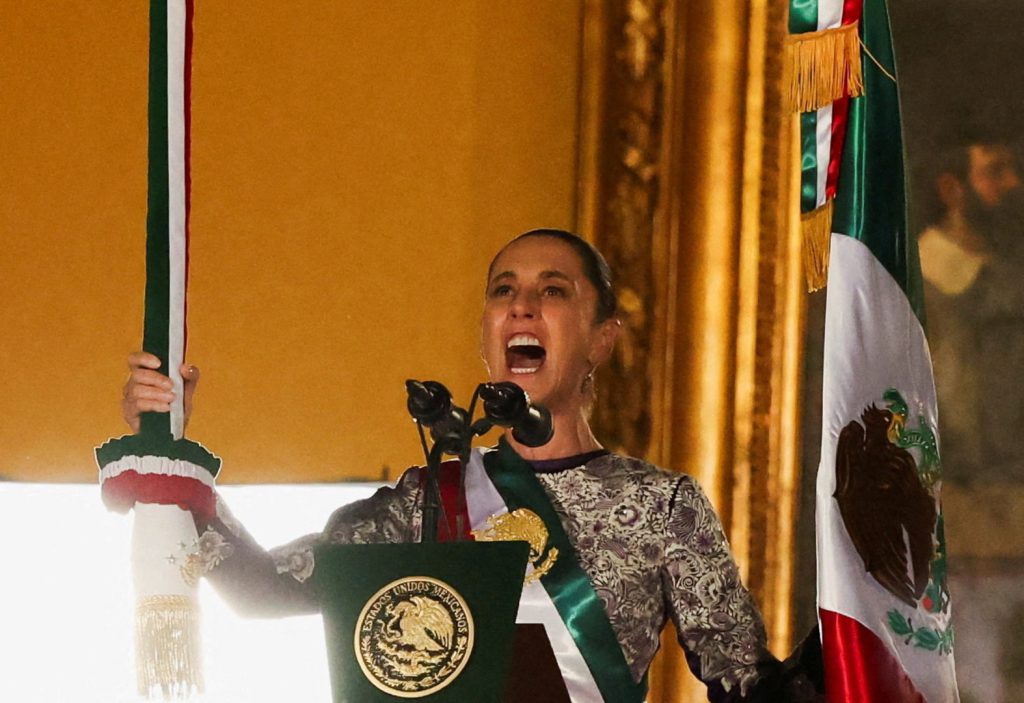
NewsFeed Mexico celebrated its Independence Day with a female president leading the commemorations for the first time in its history. President Claudia Sheinbaum gave the symbolic “Cry of Dolores” from the balcony of the National Palace. Published On 16 Sep 202516 Sep 2025 Click here to share on social media share2 Share Adblock test (Why?)
UN: Israel’s war on Gaza is genocide
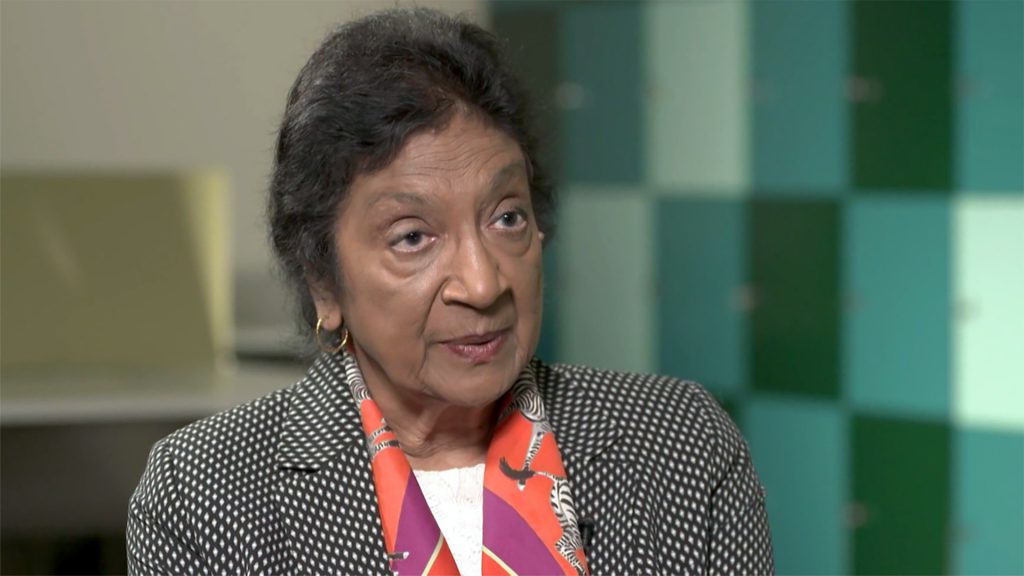
Nearly two years into Israel’s war on Gaza, a United Nations fact-finding mission has delivered its most damning verdict yet: genocide. Navi Pillay, chairwoman of the UN Independent International Commission of Inquiry on the Occupied Palestinian Territory, says Israeli leaders’ statements and the destruction on the ground prove intent. Speaking to Hashem Ahelbarra in Geneva, she explains the commission’s findings, what legal consequences Israel could face and what must happen next. As famine sets in and civilian casualties mount, Pillay outlines why this report could mark a turning point in international accountability – and whether the UN will be able to act on its own conclusions. Published On 16 Sep 202516 Sep 2025 Click here to share on social media share2 Share Adblock test (Why?)
Belarusians detained after drone flown over Polish president’s residence

Polish Prime Minister Donald Tusk says an investigation is under way after drone spotted over government buildings in Warsaw. Authorities in Poland have said that two Belarusian citizens were detained and a drone was “neutralised” after it was flown over government buildings and the presidential residence in the capital city, Warsaw. Polish Prime Minister Donald Tusk said early on Tuesday that members of the country’s State Protection Services apprehended the two Belarusians, and police were “investigating the circumstances of the incident”. Recommended Stories list of 4 itemsend of list The Associated Press news agency quoted Colonel Boguslaw Piorkowski, a spokesperson for the protection service, saying that the drone was not shot down by Polish forces but landed after authorities apprehended the operators. “The impression is that this is not something that flew in from abroad but rather launched locally,” Katarzyna Pelczynska-Nalecz, Poland’s minister of development funds and regional policy, told local media outlet TVN 24, according to the AP. The minister also advised the public against rushing to conclusions or associating the incident with last week’s high-profile incursion by multiple Russian drones into Polish airspace during an aerial attack on neighbouring Ukraine, the AP reported. Przed chwilą Służba Ochrony Państwa zneutralizowała drona operującego nad budynkami rządowymi (Parkowa) i Belwederem. Zatrzymano dwóch obywateli Białorusi. Policja bada okoliczności incydentu. — Donald Tusk (@donaldtusk) September 15, 2025 Translation: Just now, the State Protection Service neutralised a drone operating over government buildings (Parkowa) and the Belweder. Two Belarusian citizens were detained. The police are investigating the circumstances of the incident. The reported arrest of the Belarusian drone operators by Polish authorities comes as thousands of troops from Belarus and Russia take part in the “Zapad (West) 2025” military drills, which kicked off on Friday and are due to end on Tuesday. Advertisement Poland, Latvia and Lithuania, which border Belarus, closed their frontier crossings and bolstered defences in advance of the exercises, which authorities in Minsk said involve 6,000 soldiers from Belarus and 1,000 from Russia. Poland is also on high alert after last week’s Russian drone incursions, which led to Polish and NATO fighter jets mobilising to defend against what was described as an “unprecedented violation of Polish airspace” by Moscow. Polish F-16 and Dutch F-35 fighter jets, as well as Italian AWACS surveillance planes, deployed to counter the drones, marking the first time that NATO-allied forces have engaged Russian military assets since Moscow’s full-scale invasion of Ukraine in February 2022. One of the drones damaged a residential building in Wyryki, eastern Poland, though nobody was reported injured, according to the Reuters news agency. On Friday, NATO Secretary-General Mark Rutte announced that the Western military alliance would increase its defence “posture” in Eastern Europe following the Polish airspace violation. Operation “Eastern Sentry” will include military assets from a range of NATO members, including Denmark, France, Germany and the United Kingdom, Rutte said, describing the incursion as “reckless” and “unacceptable”. Amid the increased tension with Russia, NATO member Romania also reported a drone incursion on Saturday, which led to the scrambling of two F-16 fighter jets as well as two Eurofighters and a warning to Romanian citizens to take cover. Romanian Minister of National Defence Ionut Mosteanu said the fighter jets came close to shooting down the drone before it exited Romanian airspace into neighbouring Ukraine. Moscow’s ambassador to Romania was summoned by the Ministry of Foreign Affairs on Sunday, where Bucharest “conveyed its strong protest against this unacceptable and irresponsible act, which constitutes a violation of [its] sovereignty”. Russia was “urgently requested… to prevent any future violations”, the Romanian Foreign Ministry said in a statement. Adblock test (Why?)
Suspect in Charlie Kirk’s murder linked to scene by DNA, FBI chief says
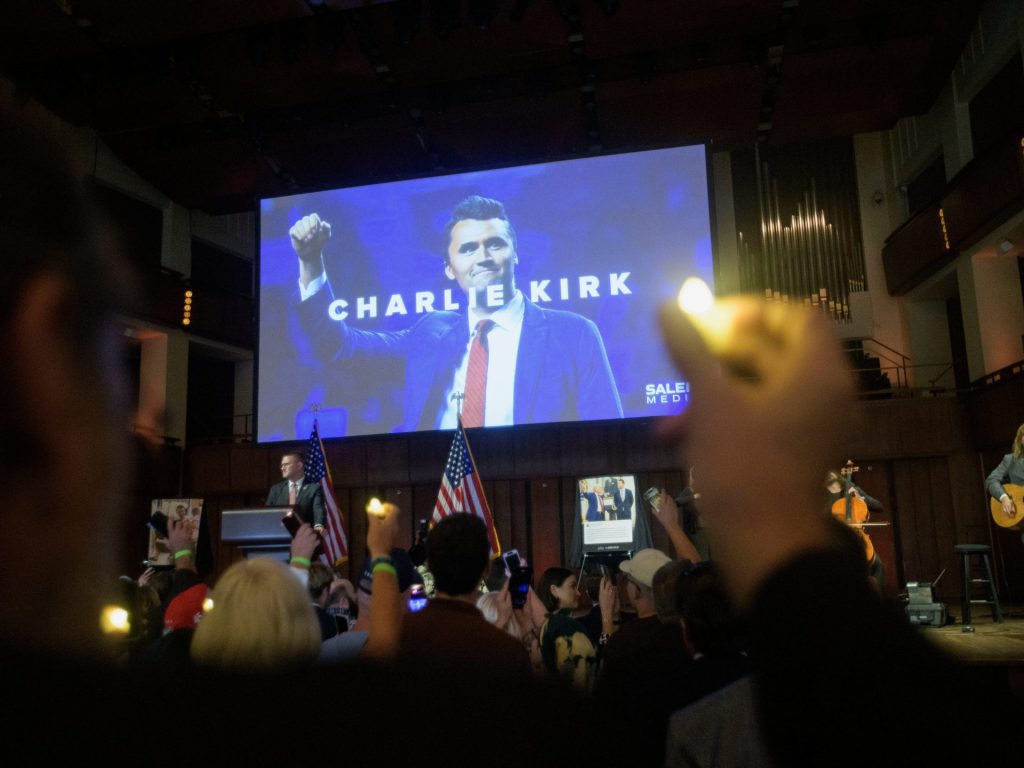
DNA evidence links the suspect in the assassination of the conservative American activist Charlie Kirk last week to the scene of the crime, the director of the FBI has said. DNA from a towel and a screwdriver recovered from the crime scene both match Tyler Robinson, FBI Director Kash Patel said on Monday. Recommended Stories list of 4 itemsend of list Robinson, 22, was arrested by police on Thursday after a 33-hour manhunt for the killer. “I can report today that the DNA hits from the towel that was wrapped around the firearm and the DNA on the screwdriver are positively processed for the suspect in custody,” Patel said in an interview on Fox News’s Fox & Friends. Patel said Robinson had also expressed his desire to “take out” Kirk in a text exchange with another person, and had written a note detailing his plans to commit the crime. Patel said the note had been destroyed, but investigators recovered forensic evidence of its existence at the home of Robinson and his romantic partner, who prosecutors have said has been cooperating in the investigation. “We have evidence to show what was in that note, which is… basically saying… ‘I have the opportunity to take out Charlie Kirk, and I’m going to take it’,” he said. Kirk, the CEO and cofounder of conservative youth activist organisation Turning Point USA and a close ally of US President Donald Trump, was shot dead last Wednesday during a speaking event at a university in Utah. The killing of Kirk, a polarising figure who was lionised by conservatives and reviled by liberals, has provoked condemnation across the political spectrum, while drawing attention to deep political divisions in the United States and raising fears of further political violence. Advertisement The murder has also prompted calls for retribution among the political right, including from Trump, who has promised to use the power of the federal government to crack down on left-wing networks that he claims are driving violence. On Monday, Trump said his administration was looking into bringing racketeering charges against left-wing groups believed to be funding agitators, and favoured designating the loose-knit antifascist group Antifa as domestic terrorists. In an appearance as guest host of Kirk’s podcast, Vice President JD Vance threw his support behind a grassroots online campaign to get people who celebrated Kirk’s death fired, urging listeners to “call them out” and “call their employer.” Numerous employees across the US have been fired or put on leave over their social media commentary about Kirk’s death, not all of whom celebrated or justified the assassination. Washington Post columnist Karen Attiah said on Monday that she had been fired over her social media posts about Kirk. In a column on Substack, Attiah said she had been terminated for “speaking out against political violence, racial double standards, and America’s apathy toward guns.” Attiah included a number of past posts about political violence in her column, only one of which mentioned Kirk specifically. That posted misquoted Kirk as saying that black women “do not not have the brain processing power to be taken seriously.” Kirk’s actual comments specifically referred to the intelligence of four black women, including former first lady Michelle Obama and Supreme Court Justice Ketanji Brown Jackson. Trump’s pledge to crack down on what he says is left-wing extremism has raised fears that his administration may seek to use Kirk’s murder as a pretext to stifle legitimate dissent. Responding to a claim by Vance that “most of the lunatics” in US politics reside on the far-left, Democratic lawmaker Greg Casar accused the Trump administration of weaponising concerns about political violence against its opponents. “He cannot be allowed to use the horrible murder of Charlie Kirk as a pretext to go after peaceful political opposition,” Casar, who represents a Texas district in the US House of Representatives, said in a statement. High-profile acts of political violence have targeted figures on both the left and right of US politics in recent years. They include the killing of a Democratic state lawmaker and her husband in Minnesota in June, two assassination attempts on Trump during the 2024 presidential campaign, and a 2022 hammer attack on the husband of Democratic former House Speaker Nancy Pelosi. Advertisement Experts say that politically motivated attacks and threats are on the rise in the US. More than 250 incidents of threats and harassment against local officials were reported in the first half of 2025, a 9 percent increase from the previous year, according to the Bridging Divides Initiative at Princeton University. While little information has been released about Robinson’s suspected motive so far, Patel on Monday affirmed an earlier assertion by Utah Governor Spencer Cox that the suspect espoused left-wing views. “His family has collectively told investigators that he subscribed to left-wing ideology, and even more so in these last couple of years,” Patel said. Adblock test (Why?)

